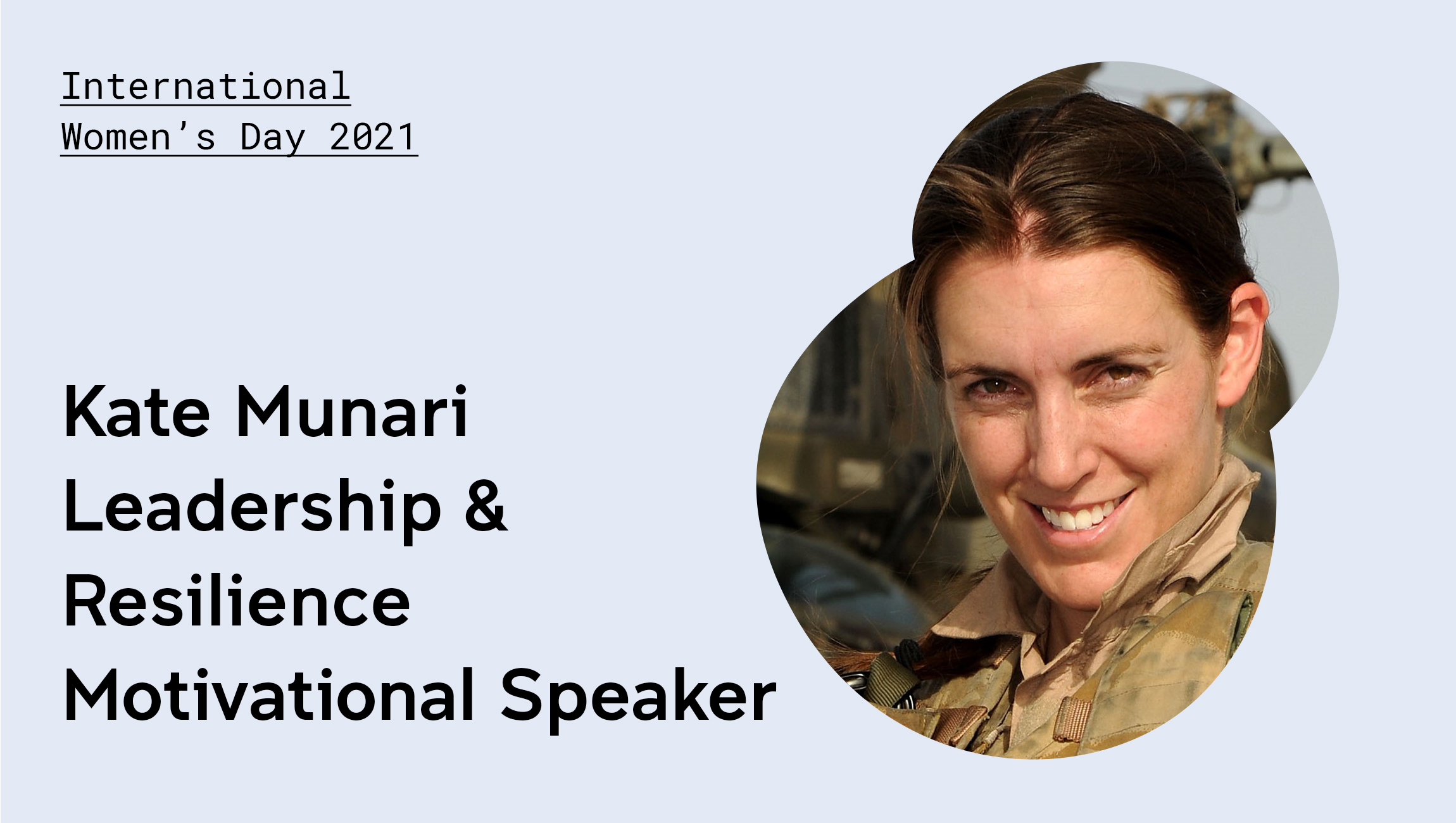International Women’s Day – Kate Munari
To celebrate International Women’s Day, we sat down with some of our amazing UNSW Canberra alumni, staff and students and asked them to answer your #WomenLead questions.
To celebrate International Women’s Day, we sat down with some of our amazing UNSW Canberra alumni, staff and students and asked them to answer your #WomenLead questions.

To celebrate International Women’s Day, we sat down with some of our amazing UNSW Canberra alumni, staff and students and asked them to answer your #WomenLead questions.
Kate Munari, a UNSW alumna with more than 15 years’ experience in the Royal Australian Navy, is Australia’s only female Navy helicopter pilot to fly in Afghanistan. She is also an Air Accident Investigator and motivational speaker who focuses on topics including leadership and resilience.
Kate shares her advice on harnessing the skills and knowledge of a team, pushing the bounds of your potential, and communicating honestly and directly.
Can you share some advice for climbing the ladder in a male-dominated field?
Don’t focus on your gender. Your skills and ability are what is important. In every workplace you will find allies. Align yourself with them and don’t focus on the doubters, the negative individuals. Underlying all else, you have to be good at your job. Job competency is key to your success. I have always found it helpful that whenever my gender has been brought up in relation to my position, I always try and steer the focus back to my job competency and performance, because that’s what matters.
What would you tell your 20-year-old self about leadership?
Leadership is a role you grow into. No one expects you to know everything and to make decisions in isolation. That is why you have a team. A good leader knows how to harness the skills and knowledge of the individuals to come up with the best outcome, and there are two areas that I believe are key to your success as a leader.
These two areas I have always focused on as a leader have been communication and knowing my team. My mantra when it comes to communication is to be direct, honest and respectful. That is how I communicate and that is how I expect my team to communicate. This style of communication goes a long way to maximising your team’s success and as an extension, your success as a leader. And it is crucial to know your team. By really knowing each individual as a leader you can empower each and every one to bring out the best in them.
Do you have any advice for handling change?
Education is a key pillar to helping us deal with everything in life, personally or professionally. Change is inevitable and you can choose to be a positive part of that change or you can choose to fight the change. The more educated you are about the current situation, and the reasons surrounding the need for change the more prepared you can be to be a part of that change, to find the positive in the change and help support and work with the change. When talking in terms of change in the workplace, as a leader if you know your team you will be able to identify early how this change will affect them and you can help to mitigate the negative impacts and maximise the positive impact of the change on your team.
Do you have any advice for handling failure?
Failure is a natural part of life. We need to shift the focus of failure from it being a negative, finite state, to being a learning opportunity and one we can grow from. That is the most important part of failure, the growth we gain from it. Failure is not the end of the road, it’s just a challenge to be overcome. And I would argue that if you have never failed at anything in your life then you have never truly reached the bounds of your potential. Treat failure as a learning opportunity and it will lessen the negative emotional impact of the failure, and help to keep you focused on growth and the end goal.
What’s the best piece of leadership advice you’ve ever been given?
Don’t change who you are. Don’t try to be someone you are not. Learn from other leaders and their styles, the good and the bad. Take note of the leadership traits you value and apply them to your leadership style. By remaining true to yourself you will be a more authentic and effective leader.
How do you deal with perceptions that you only got to where you are because you are a woman?
I have been fortunate that throughout my career there were some very clear, measurable milestones that I achieved, and I could use these to ‘prove’ to people I got to where I got based on merit. However, that still did not stop those few with a focus on my gender perpetuating the perception that my success must have had something to do with my gender.
When I deal with people who hold those perceptions, I have no issue calling them out on their comments or doubts, and quoting to them exactly how I meet and exceed the standards to merit being in the position I am in, always in a factual and controlled manner.
It is unfortunate that women still need to correct this attitude, however by calling it out and addressing it with facts, it often highlights how absurd their perception actually is. I’d also like to take this opportunity to remind women who find themselves in this situation that the gender perceptions other people have are a reflection on them and their character, not a reflection of your job competency.
Read more International Women’s Day Q&As: